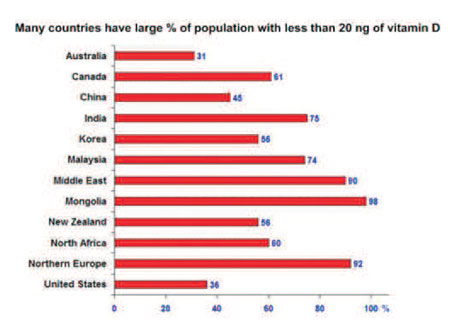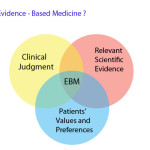EVIDENCE BASED MEDICINE (EBM)

We claim that we are practicing according to EBM (Evidence Based Medicine). It has three components. Are we really doing according to these guidelines ? Practically we don’t consider the preferences of patients (what should be done for particular patient with keeping in mind his economic and social status and other things). We don’t consider of basic research and fundamental statistical data given by reliable agencies for diagnosing and managing the illness.
Examples :



More than one third world population is suffering of micronutrient deficiency, even in affluent and developed countries. If we take account of optimal values, then this figure increases too much. Even after supplementation, Persons showing no deficiency in US population is only upto 19%. VIT D : There is world epidemic of hypovitaminosis D. If we take into account of optimal levels, then this comes to more than 90% of world population. OMEGA6 : 3 RATIO : High ratio is prevalent in our society (> 90% of world population) These are few examples of statistical data but we are not aware

of these things. We are not taking into consideration of these things in diagnosis, interpretation and management of our patients. There are also many other researches on many other basic things. Our decisions would be entirely different when we are aware of these statistics. There are lot of scientific studies of private and government agencies on efficacies of giving these nutrients as medicine in all these chronic diseases. But there is no need of any RCT (Randomized Controlled Trial) or double blind study for these basic and essential nutrients.We have to take them to regain normal levels for proper functioning of different organs. There is no dispute for these things anywhere. Even we have proved these things by investigations and clinically in our mission health during last 4 years at Shamli.
EVALUATION OF FEW OTHER
COMMON & BASIC THINGS
We should evaluate a number of basic things which are common in most of healthy persons & patients (>50%) and contribute to almost every chronic disease. chronic dehydration, Melatonin deficiency, Xenoestrogen & oestrogen dominance, slow radiation damage, chronic tissue hypoxia, essential sugar deficiency, methylation defect, oxidative stress, food additive & other toxins, sugar, salt & Trans fat excess, vitamin K2 deficiency, Insulin resistance (Syndrome X), Mitochondrial dysfunction & energetic imbalance = COQ 10 enzyme deficiency, glycosylation & advanced glycation end products (AGE), Telomerase deficiency & Telomere shortening, Hypochlorhydria, Sound, air & water pollution, Stress & adrenal fatigue, Endorphin deficiency.




